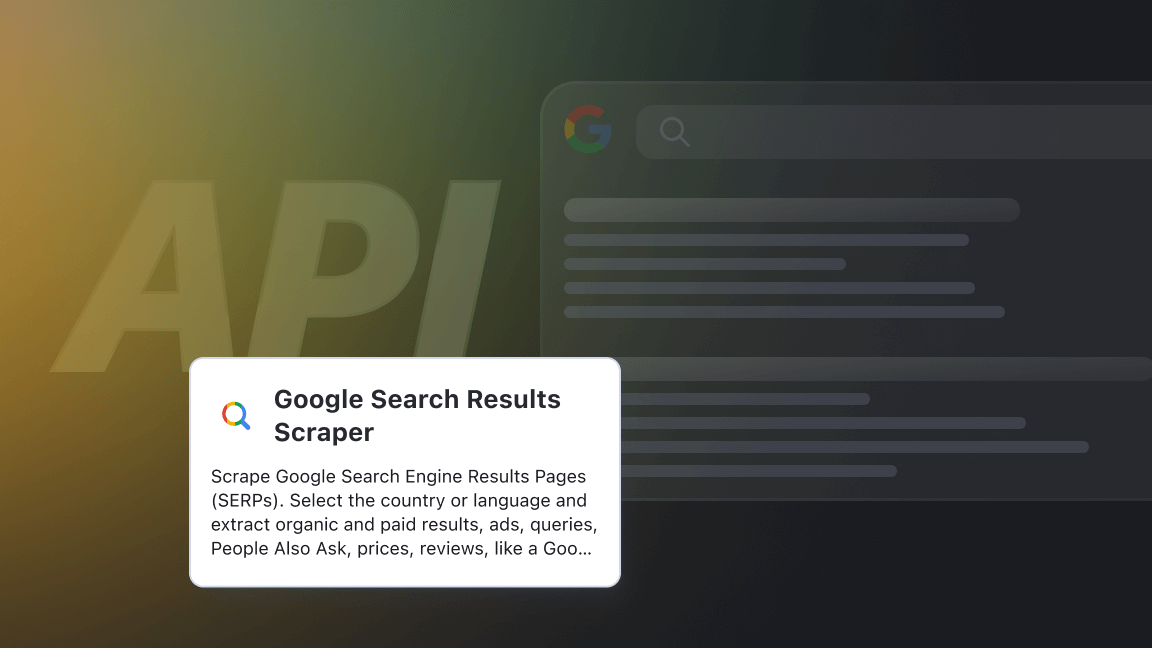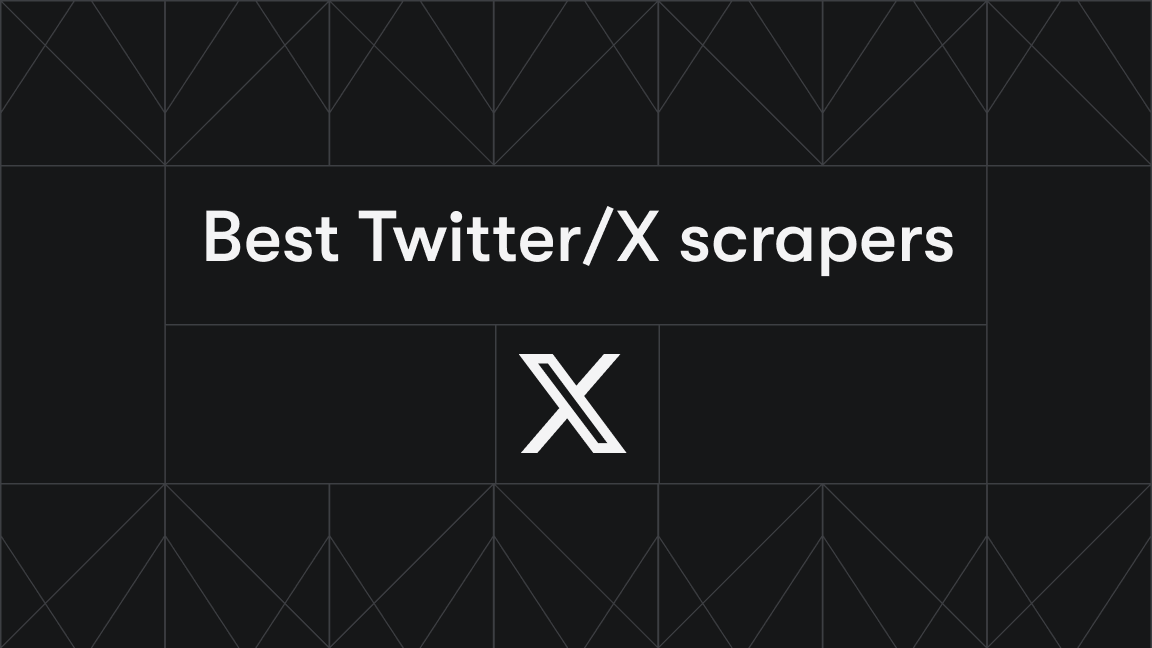As a marketplace of over 80K APIs, RapidAPI by Nokia helps developers discover, connect, and manage APIs from multiple providers. It also offers tools for testing, monitoring, and analytics on API usage and performance.
But what looks good on paper often causes problems in practice:
- The overwhelming volume of APIs is a discoverability challenge - with over 80,000 solutions on one platform, but without standardization in place, finding a reliable tool for a specific use case takes time
- There are no strong guardrails in place to prevent overspending, abuse, or outages - you can’t set spend limits or restrict usage by IP/domain
- Monitoring lacks granular insights for debugging: no breakdown of error types, no tail latency metrics (p95/p99), and no per-request logs. This makes it hard to diagnose why requests are failing without building a separate monitoring infrastructure
- No infrastructure is provided - to publish on RapidAPI, you build and host your solution yourself, then simply list it on their marketplace
- Pricing rules are vague - concepts like “billing objects” aren’t standardized, and developers frequently report surprises with overages or plan changes
Because of these issues, many developers look for alternatives that:
- Grant them control over API logic
- Offer deeper analytics for debugging, not just surface metrics
- Provide infrastructure for running or managing APIs
- Offer transparent pricing with spend caps to keep costs predictable
- Enable a fast start with ready-made solutions or tutorials
- Support building custom solutions for any website or workflow
With that in mind, we’ll compare five viable RapidAPI alternatives: Apify, APILayer, Zyla API Hub, Kong Konnect API catalog, and Postman.
RapidAPI alternatives: Quick comparison
| Platform | Monetization options | Marketplace feature | Analytics | Best for |
|---|---|---|---|---|
| Apify | Yes – publish scrapers on Apify Store | Apify Store with 10,000+ scrapers | Usage logs, run history, performance metrics | Developers and consumers who need both ready-made and custom scraping APIs, with full control over logic and scaling |
| APILayer | Yes, limited – curated APIs only | Curated marketplace (~100 APIs, mostly data/business) | Usage monitoring, quota tracking, error monitoring | Consumers who want stable, high-quality data APIs without marketplace noise |
| Zyla API Hub | Yes – open publishing with monetization | Public marketplace (8,000+ APIs) | Subscription usage tracking, API call metrics, error tracking | API providers who want to monetize, and consumers who want broad API discovery |
| Kong Konnect API catalog (Dev Portal) | No native monetization (external billing needed) | Private/internal catalogs only | Built-in usage, latency, error tracking via Kong Gateway | Enterprises wanting a private RapidAPI-like hub for internal or partner APIs |
| Postman Public API Network | No monetization, exposure only | Directory with thousands of APIs (published as collections) | Request/test results, response times, limited usage analytics | API consumers who want to discover and test APIs quickly in an interactive environment |
1. Apify
Apify is a platform for web scraping and automation that lets developers turn any website into an API. It provides an open-source SDK, ready-made scrapers on Apify Store, and a cloud runtime with scheduling, scaling, and monitoring built in. Each scraper automatically exposes a ready-to-call API endpoint with JSON, CSV, or Excel output.
Developers can build their own scrapers and data APIs (Actors) in Apify Console using templates or custom code, and monetize them through Apify Store. Consumers can browse scrapers by category, service type, or author and run them instantly.
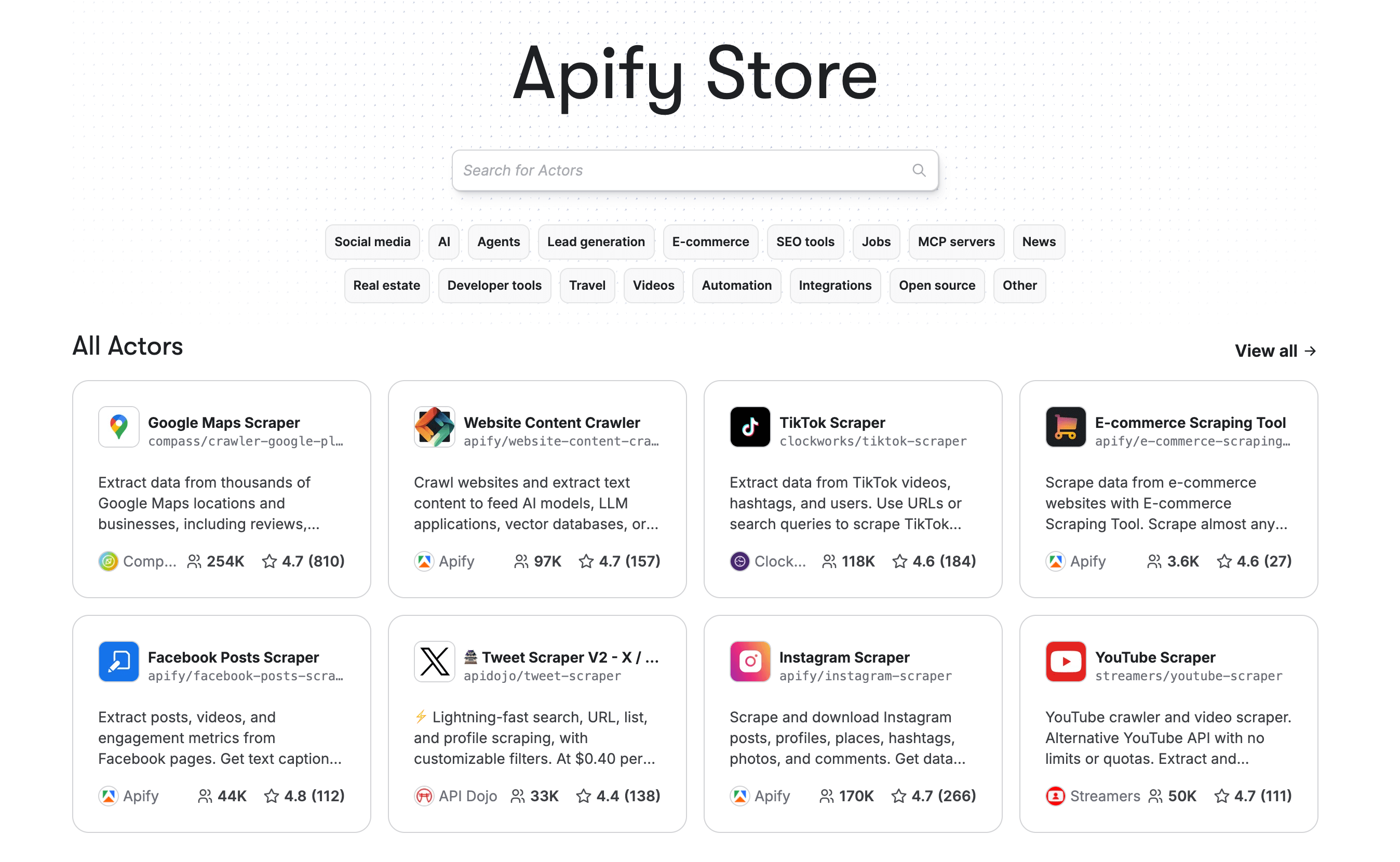
Pricing models: Pay-as-you-go and subscription plans with hard limits and spend caps
Key features:
- Marketplace with 10,000+ scrapers and automation tools (Actors)
- Infrastructure provided - you deploy scrapers to Apify’s cloud without the need to host your own servers
- Auto-generated user interface based on the input schema for each Actor so that non-coders can tweak input easily (using keywords, URLs, or filters)
- Built-in proxy rotation, anti-blocking logic, and session management to help reduce IP blocking or detection
- Monitoring console with run status, granular metrics (with detailed logs and error classifications), as well as alerts set in Console, via email or Slack
- You can schedule Actors or tasks to run automatically
- Built-in monetization: pay per event, subscriptions, custom Actors
Limitations:
- Apify Store is scraper-focused. APIs outside scraping/automation could be outside Apify’s core domain
2. APILayer
APILayer offers a curated marketplace focused on utility and data APIs - geolocation, currency conversion, email validation, IP lookup, and similar. The catalog is curated and domain-specific: Each API is manually reviewed for quality and reliability before being published on the marketplace. APILayer supports a community of over 450,000 developers, offering workshops, tutorials, and code examples to help users build real-world projects.
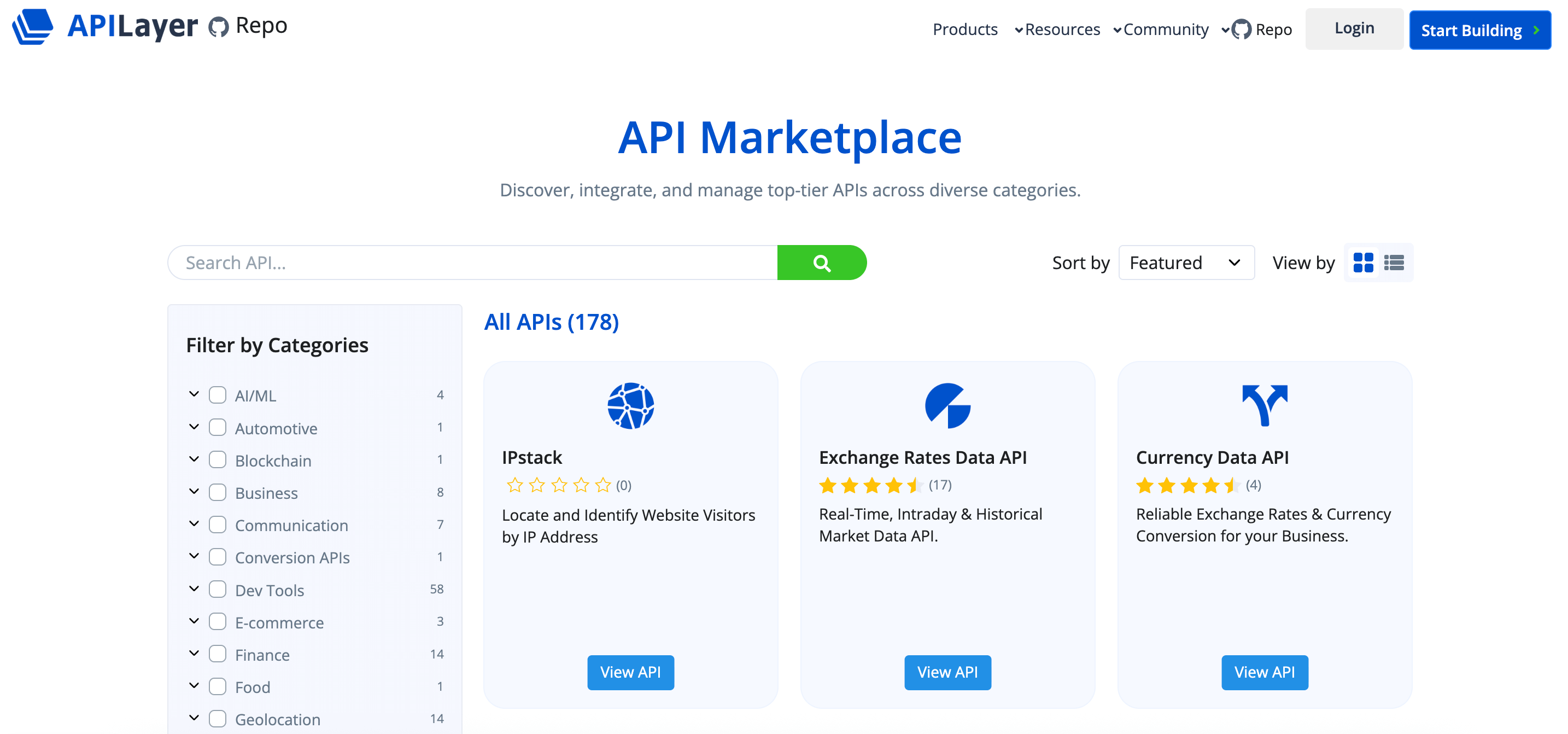
Pricing models: Tiered subscriptions per API with hard caps (no surprise overages)
Key features:
- Focused catalog of curated utility/data APIs - less noise and fewer low-quality APIs
- Subscription per API, with predictable pricing per volume of requests
- Developer dashboard for usage, quotas, and API keys
- SDKs and docs provided for every API
- Developers can list their APIs, set pricing, and manage usage through Zyla infrastructure
Limitations:
- Narrower coverage and lower discoverability: if your API is niche or beyond the utility/data scope, you may not find a match
- Less advanced governance compared to full API management platforms - providers can’t configure per-endpoint rate limits or IP whitelisting/blacklisting
3. Zyla API Hub
Zyla API Hub offers a marketplace similar to RapidAPI. It’s a public hub with 8,000+ APIs across multiple categories, but Zyla enforces a vetting process to ensure uptime and reliability. It provides subscription management, usage tracking, and open publishing for providers, along with built-in monetization capabilities.
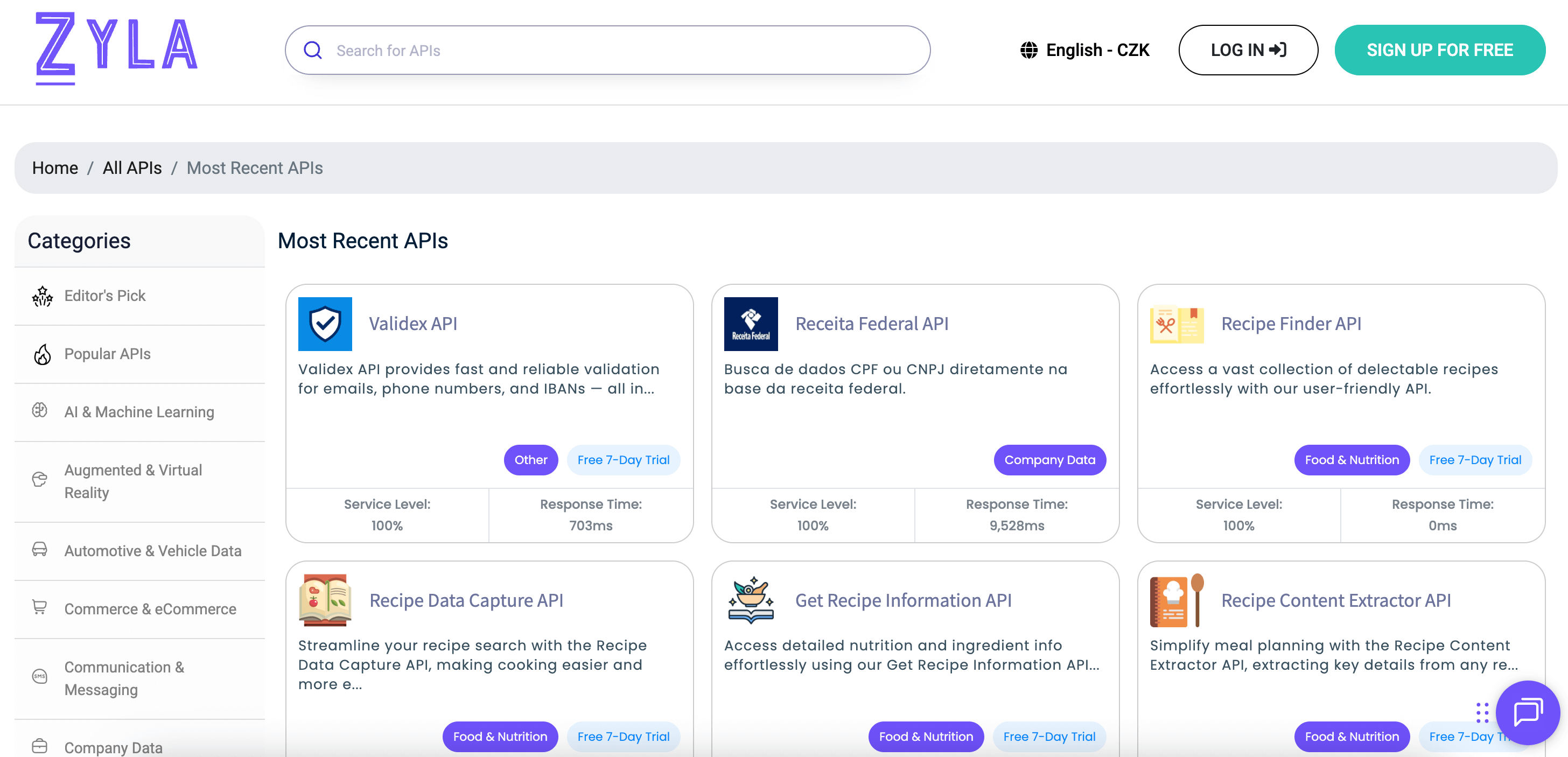
Pricing models: Subscription-based, with soft caps when limits are exceeded
Key features:
- Marketplace offering API listing, subscription, developer portal, and key management
- Filtering for consumers for easier discovery - by category or tags
- Focus on quality: Zyla enforces a minimum uptime requirement (e.g. 99.8%) for listed APIs. If it falls below that, the creator’s earnings may be reduced or the API may be suspended
- Built-in testing console
Limitations:
- Smaller developer community than RapidAPI (fewer consumers)
- APIs in niche domains may have limited reach
- Zyla takes ~20% revenue share from providers
4. Kong Konnect API catalog
Kong started as an open-source API gateway and has evolved into a full API and microservices management platform. Developers can publish, configure, delete, and monitor APIs through a centralized interface. Kong’s policy framework ensures security, performance, and governance. The built-in Developer Portal lets organizations create a private, branded catalog where internal or partner developers can discover APIs, view documentation, and request access.
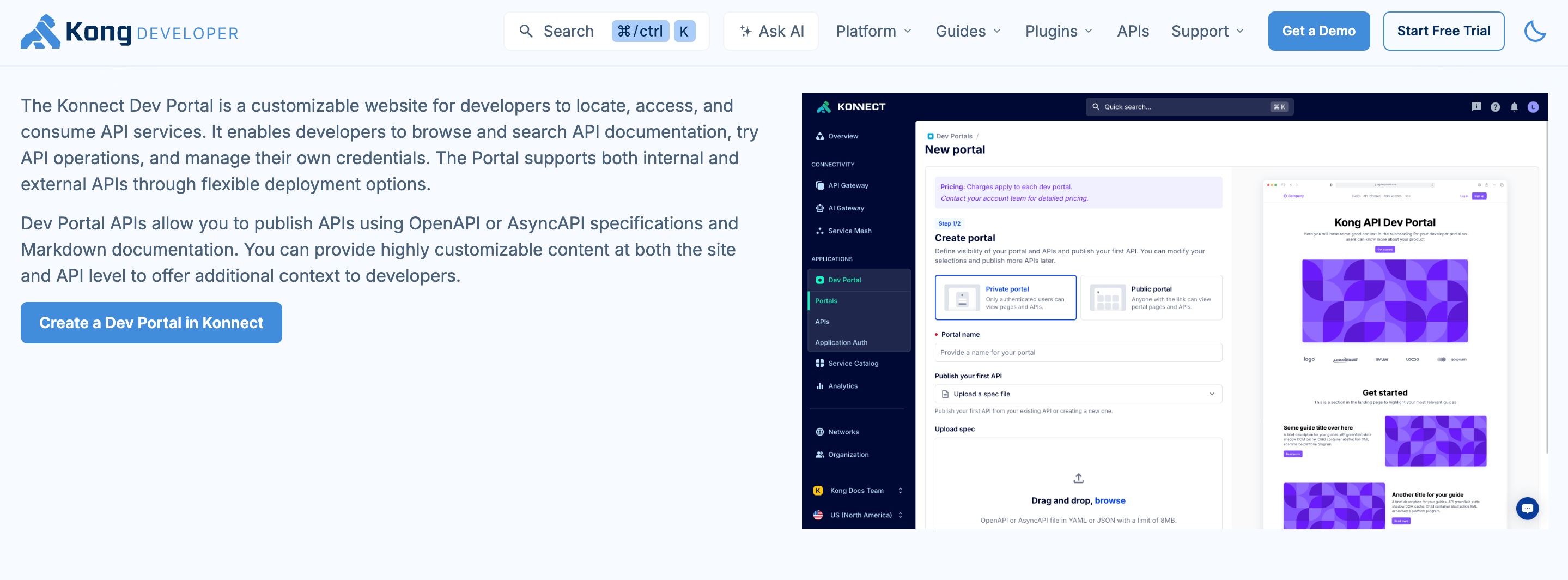
Pricing models: Enterprise licensing (SaaS or self-hosted). Cost control is up to the provider.
Key features:
- Native integration with Kong Gateway for unified API management with a private marketplace
- Centralized UI to create, update, and monitor APIs
- Developer Portal to publish docs, SDKs, interactive consoles, API keys, and subscriptions
- Analytics: latency, error rates, health, usage volumes
- Security and governance via policies like rate limiting, quotas, authentication, and traffic controls
Limitations:
- Kong’s consumers are limited to the org’s own APIs - there’s no public catalog of third-party APIs
- No native billing/monetization layer - requires external tools
5. Postman
Postman is widely known as a platform for designing, testing, and collaborating on APIs, but its Public API Network overlaps with RapidAPI by serving as a discovery hub. Developers can search thousands of APIs, fork prebuilt collections into their workspace, and run requests. Unlike RapidAPI, Postman doesn’t offer monetization or subscription management - it focuses on making APIs easier to explore, document, and adopt. For consumers, it’s a fast way to try out APIs; for providers, it’s a channel to increase visibility.
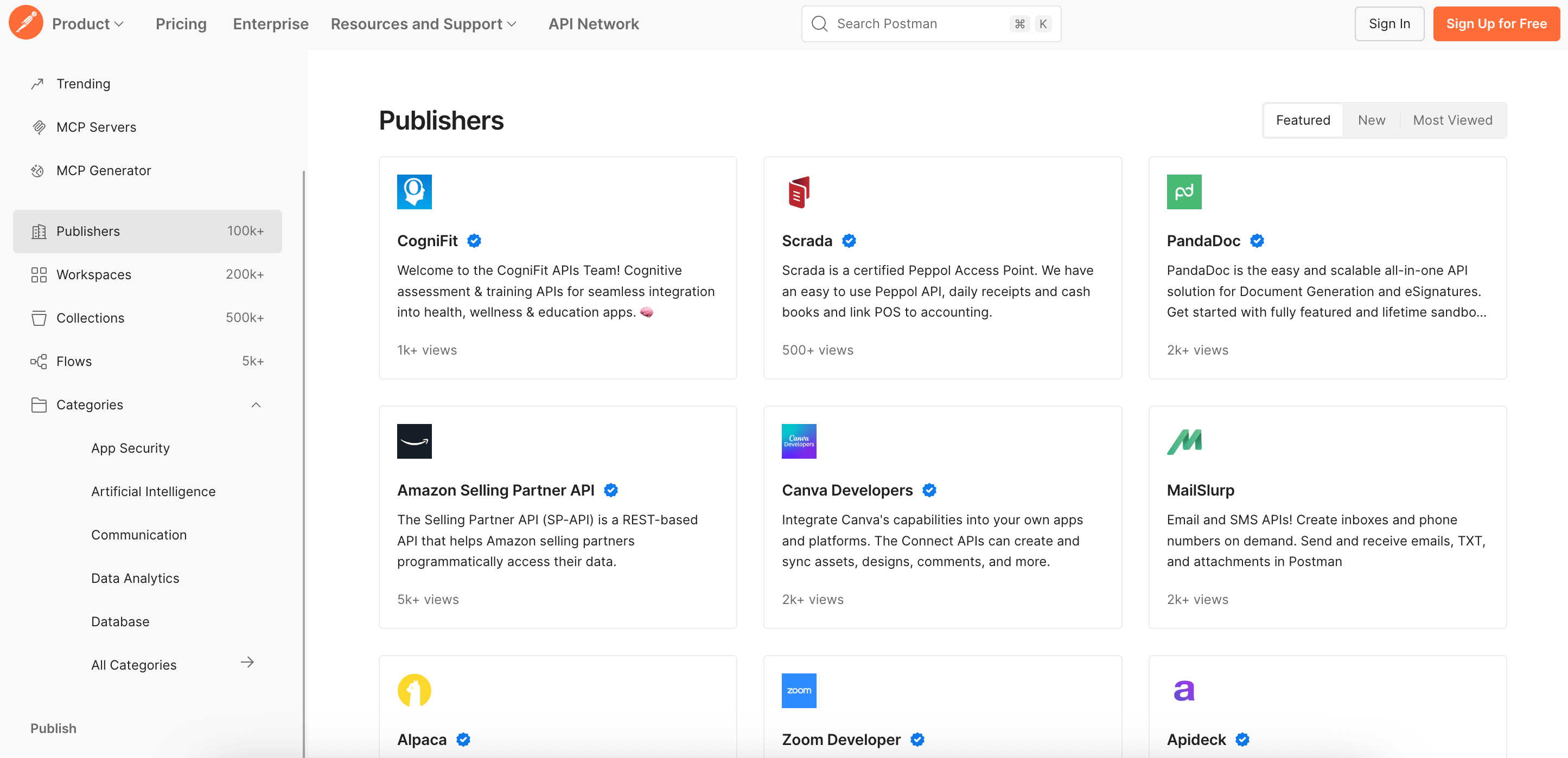
Pricing models: Free for individuals; paid tiers for team collaboration. No API billing - that’s handled externally by providers
Key features:
- Public API Network with thousands of APIs documented as Postman collections (curated sets of API requests with docs and tests)
- Built-in testing, monitoring, and automation tools
- Mock servers for simulating APIs during development
- Can import, generate, and work with standard API specification formats (OpenAPI, GraphQL, RAML)
- Collaboration features (workspaces, roles, permissions)
- CI/CD and automation integrations (GitHub Actions, Jenkins, GitLab).
Limitations:
- No monetization or subscription management
- Does not host production APIs; providers need external infrastructure
- Suited for testing/discovery, not for publishing revenue-generating APIs
Choose your RapidAPI alternative
If you’re looking for a marketplace to start fast with ready-made solutions and a platform to build, customize, and scale your own tools, Apify fits your requirements: Apify Store lists pre-built scrapers, while Apify Console lets you build and deploy custom solutions with full control over logic, deep analytics, and transparent pricing for consumers.
Plus, Apify standardizes how tools are built and consumed: Every scraper runs in its own cloud container with consistent inputs and outputs. Results are automatically stored and can be exported in JSON, CSV, or Excel. This means developers can build without managing infrastructure, while consumers get predictable behavior across all 10,000+ scrapers on Apify Store.





